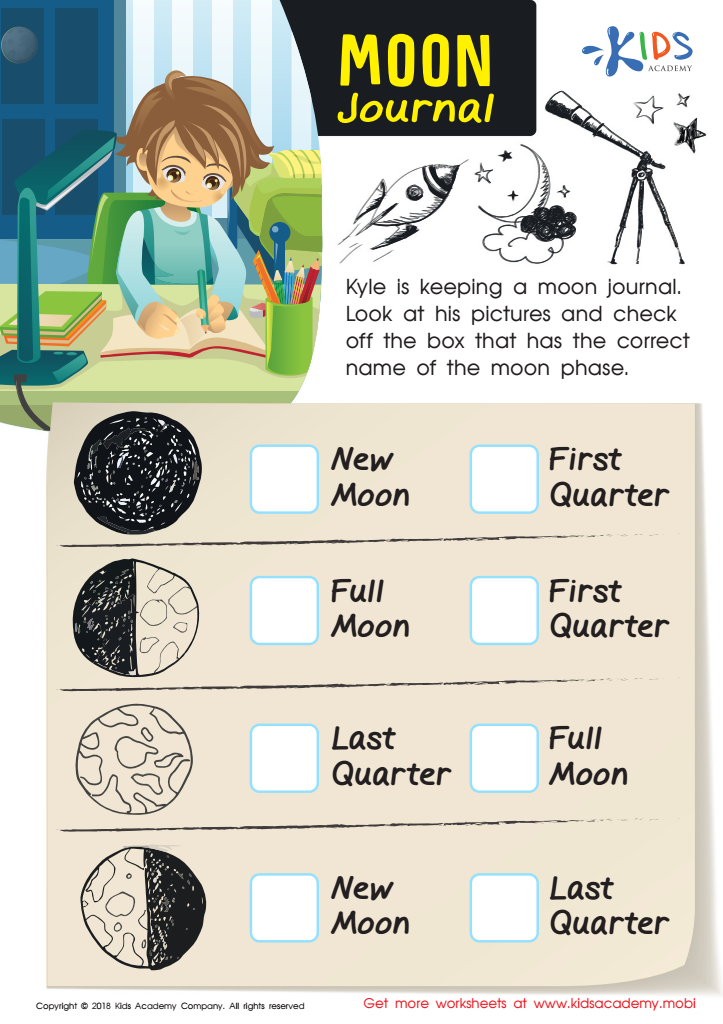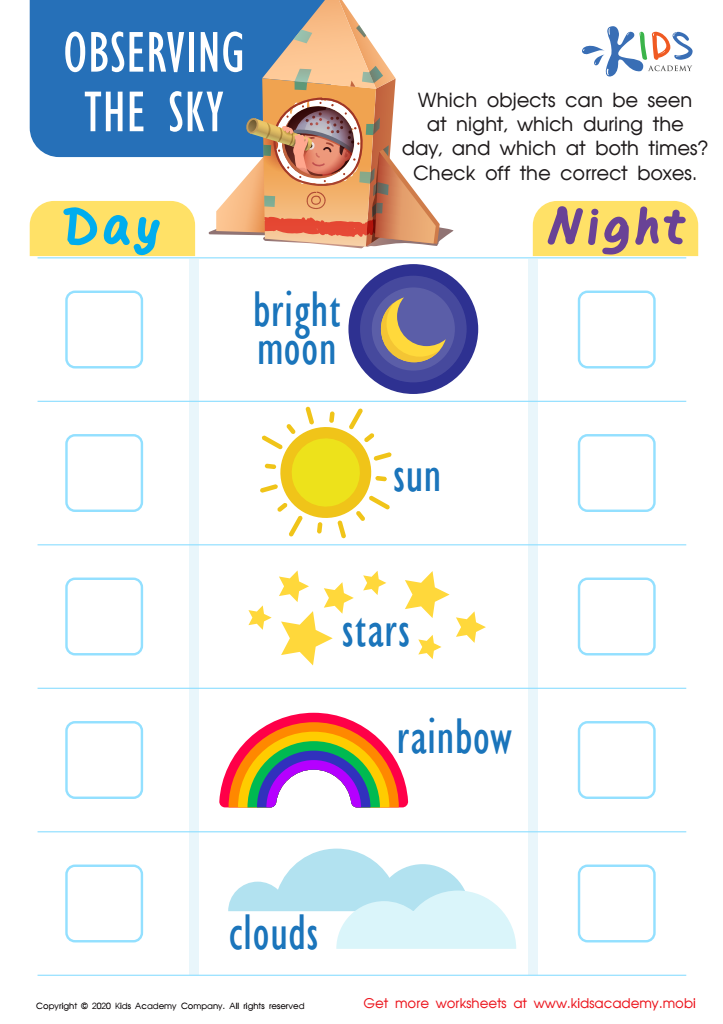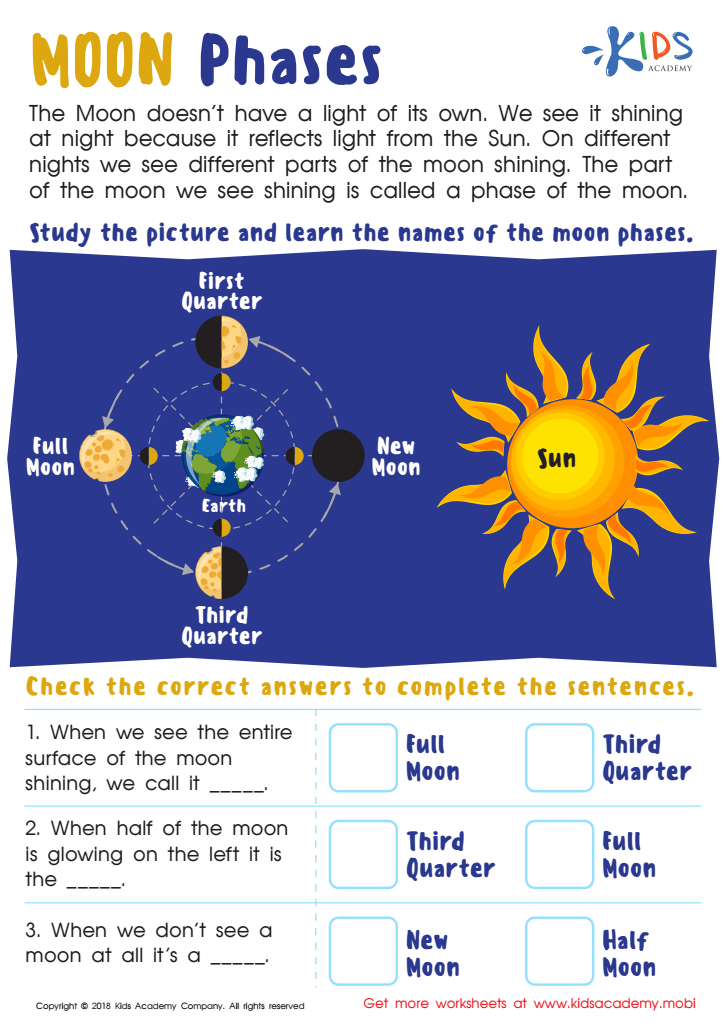Observational skills Space Worksheets for 7-Year-Olds
3 filtered results
-
From - To
Discover our engaging Observational Skills Space Worksheets designed specifically for 7-year-olds! These innovative resources help young learners sharpen their observation skills while exploring the fascinating world of space. With vibrant illustrations and interactive activities, children will embark on exciting journeys through planets, stars, and galaxies, enhancing their ability to notice details and think critically. Our worksheets support the development of essential science skills while ensuring hours of fun and discovery. Perfect for at-home learning or classroom use, these worksheets are tailored to ignite curiosity and foster a love for science in your young explorers. Get started on a cosmic adventure today!


Moon Journal Worksheet


Observing the Sky Worksheet


Moon Phases Worksheet
Observational skills are crucial for the development of 7-year-olds, and both parents and teachers should prioritize nurturing these abilities. At this age, children are naturally curious, and fostering their observational skills enhances their understanding of the world around them. By encouraging careful observation, children learn to notice details, recognize patterns, and make connections, which are essential for critical thinking and problem-solving.
Developing strong observational skills also contributes to literacy and math competencies. As children learn to observe and describe their surroundings, they improve their vocabulary and language skills. Moreover, observing shapes, sizes, and spatial relationships lays a foundation for mathematical reasoning.
In addition, observational skills aid in social-emotional development. When children learn to observe the emotions and reactions of others, they become more empathetic and can better navigate social situations.
Furthermore, enhancing observational skills promotes engagement in science and exploration. Encouraging children to notice changes in nature, for instance, develops a sense of inquiry and scientific curiosity.
Ultimately, parental and teacher support in honing these skills helps build a well-rounded, confident, and knowledgeable child, better equipped for academic success and meaningful interactions in an increasingly complex world.
 Assign to My Students
Assign to My Students
















